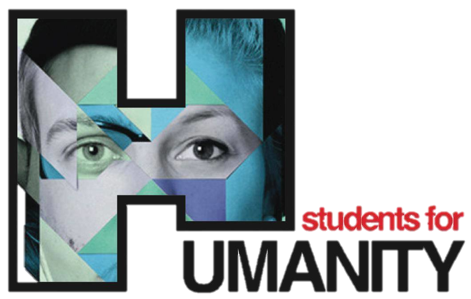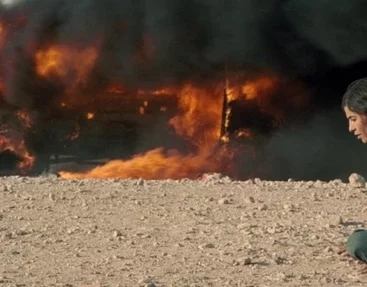Incendies – Villeneuve’s movie inspired by the Lebanese civil war
Movies can often reveal the worst human side, especially those who show us scenes of war and the reality of it. It occurred to me recently to watch a 2011 movie from the celebrated Canadian director Denis Villeneuve, who these days is more acclaimed for science fictions such as Arrival, Blade Runner 2049 or Dune. However, I think that the filmmaker shows his best abilities in his previous works, especially the more dramatic ones. Here in Incendies, a little masterpiece in its long silences and desertic scenes, Villeneuve took inspiration from the cruel Lebanese civil war to narrate a complicated woman’s story and celebrate her strength, while at the same time showing the barbaric aspect of a conflict. The director’s choice is, however, a subtle and clever one; never in the entire film is a real country named, and even the cities appearing, such as Daresh, where the protagonist went to study, were fictitious. This is not only a simple stylistic exercise but also a way to deliver the story in an attempt not to follow a strict storyline, an attempt to show the cruelty of civil war without taking a real side.
The story begins in modern Canada; Simon and Jeanne are the twin children of Nawal, a woman that recently died. However, the mother reveals in the testament the existence of another son, born from a short relationship with a refugee in an unnamed Middle Eastern country, asking her children to go find her abandoned child and their unknown father. The movie, from then on, is a continuum of flashbacks from Nawal’s past in a Christian Arab family and her tragic destiny during the civil conflict, while in present times the two twins investigate her dark past. The slow but crude storyline leads, in a vortex of attacks, abuses, cruelty and hope, to a shocking and disturbing discovery, which closes the insidious story cycle.
Besides the mastery with which Villeneuve explores some delicate themes, such as motherhood, the shocking abuses perpetrated on women and children during a conflict and the theme of the anagnorisis (inspired directly from the Greek tragedy, the recognition of a lost son or of the reality itself), the movie references to recent events are continuous and clear.
As already said, Villeneuve took inspiration from the Lebanese Civil War, which occurred between 1975 and 1990, and more specifically from the story of the former prisoner Souha Bechara. Even if every city name is invented and the scenes are shot in Jordan, the hot landscape and the war episodes happening are connected with Lebanon.

In fact, the country experienced a 15-year brutal civil war, that resulted in more than 120,000 deaths, a massive flow of refugees and poverty that still continues today. The conflict had a very sectarian nature, which can also be found in a sentence from a scene of Incendies, when talking about the fictious country.
“ Oh, this country is a war zone after another, eh! […] If the notary had existed at the time of Noah, we would not be here. We need only to find the original contracts. […] Notaries have existed only in the last 1,000 years, Simon. That’s the problem.“.
This might also be a reference to the chirurgic division of the city of Beirut and the whole country itself: the civil war was defined as sectarian because the main conflict was continued and motivated by religious causes. In a complex country such as Lebanon, it has always been easy to divide and incite the population to act against each other for political purposes, using these religious divisions, even with external interventions (both Syria and Israel intervened in the war at some point) and many different interests. However, at the very end, what remains is despair, poverty and instability for the citizens. The conflict was principally, even with many nuances, between the Christian Arab community (mainly Maronites) and the Palestinian forces. Moreover, the city of Beirut at some point, even if that did not represent the complex reality, was divided in two main sectors; East Beirut for the Christians and West Beirut controlled by Muslims.
The brutality of it was also in the cruel disregard for human rights; often the armed clashes between the militias were mere and deliberate retaliative acts against the civil society, women and even children, guilty only of having a different belief or living in the wrong neighborhood.
In one topical scene in the movie, while in a flashback the mother is trying to find her lost child in a hostile war environment, a bus carrying many Muslim refugees is attacked by a group of soldiers, leaving no survivors. This is a clear reference to one of acts that started the war back in 1975, the so-called “Beirut bus massacre”. The assault on the crowded bus, which caused the death of 28 people, was an act of retaliation for the previous attack in front of a Beirut church, where 4 people died. The act is known for its brutality, since it targeted civilians, in a spiral of violence that devastated the country for the following decade.

Incendies is able to blend the dramatic story of the protagonists with the fragile historic period and the multiple violations of human rights that occurred in Lebanon. It is surely an interesting pretext to learn more about a war that is often forgotten, a reminder of how easy it is for humans to transition from a relative cohabitation to a disruptive war.


